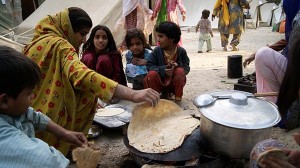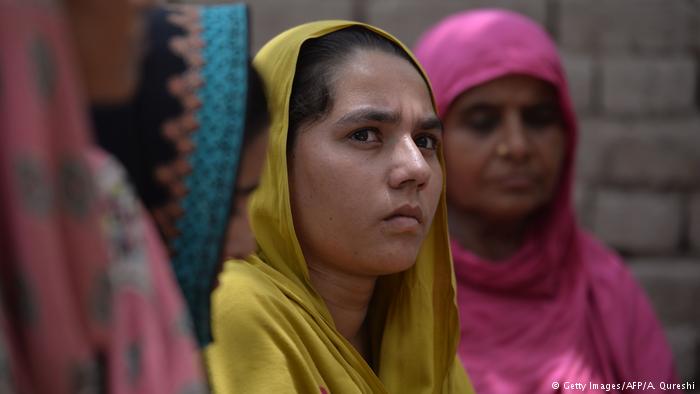Pakistan seeks justice
 It’s been two years since the reported murders of five tribal women in a remote region of Pakistan made headlines, but powerful local elders have blocked all efforts to carry out independent investigations and punish the culprits.
It’s been two years since the reported murders of five tribal women in a remote region of Pakistan made headlines, but powerful local elders have blocked all efforts to carry out independent investigations and punish the culprits.
A tribal court in Kohistan district of the north-western province of Khyber-Pakhtunkhwa reportedly ordered the women executed after they were shown singing and clapping in a video clip as some men from a rival clan danced at a wedding party in March 2012. The women’s relatives were infuriated not at the punishment, but about the video, and later killed three other men allegedly responsible for it.
Rights groups have been pressing authorities to investigate the murders of the women, whose ages have not been revealed, but nothing has been done.”Criminal activities like the killing of women are being treated as a manly act of saving family honour. The government should stop this to protect women from violence,” women’s rights activist and university professor Farzana Bari said.
Last month, Bari again brought the incident to light by saying that she had fresh evidence and urged the Supreme Court to reopen the case, which it closed in 2012 after two investigating trips to the region failed to find any evidence. Bari’s claim was supported by Maulana Dildar Ahmed, a former provincial legislator from Kohistan, who told local media last week that all the women and men shown in the video had been killed.
Ahmed also said the female victims were buried in a remote area of the mountains, and that he could locate the site. Bari, who participated in the initial investigation, alleged that the
team were tricked by the local elders who wanted to cover up the entire incident. “Now I recall that the girls we met during investigation had close resemblance with those in the video but they might not be the real ones,” she said. “I think we were misled by the local authorities.” Ahmed said the girls who were shown to the team of officials and activists were actually relatives of the murdered women.
The government and police have not responded to the new evidence and claims of both Bari and Ahmed. “I do not know about this case or new evidence about the killing of girls, but I will check with police,” said Sheraz Paracha, spokesman for the Khyber-Pakhtunkhwa provincial government. The non-governmnetal National Commission on the Status of Women (NCSW) filed a case on February 11 at a district court in Dasu, the major city in Kohistan district, to produce evidence about the fate of the women.
“I have filed habeas corpus writ on behalf of NCSW about the five women and the court has asked district police officer to present them on February 26,” said Mazhar Akram, an Islamabad-based lawyer who travelled to the district to press the case. “The judge also asked police to bring the dead bodies in case they were killed.” While the fate of the women remains unclear, and the case goes largely unnoticed, authorities did act to bring justice for the murders of the three men in connection with the video.
Police last year arrested five relatives of the women, and a trial court in Dasu last week convicted them of murder. One defendant was sentenced to death, and the other four received life in prison. “The punishment in the men’s murder case linked to video shows the double standards of our society,” Bari said. “If someone kills a man, he would be hanged, but no such law applies if the victim is a woman.”
dpa






